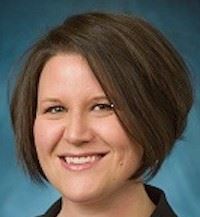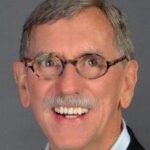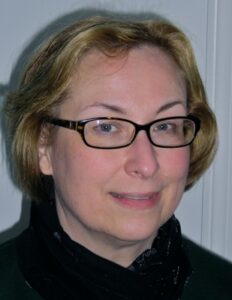USA Representative:


Current Themes/Resources in Career
Continued Focus on Equity and Inclusion: One example includes: October is National Disability Employment Awareness Month in the US, focused on how America’s workers with disabilities have and continue to contribute to the nation’s strengths and highlight ways that employers (and career development professionals) can benefit from supporting inclusion. NACE is currently running a 2023 Disability Signature Series: Advancing Access and Equity through October and November
Upcoming Opportunities & Resources
Upcoming Opportunities & Resources
Upcoming Opportunities & Resources
Current Themes/Resources in Career
Upcoming Opportunities & Resources
Current Themes/Resources in Career
Leadership: Leaders are navigating increasingly complex work-place dynamics, challenges, and change. When coaching clients in leadership roles or seeking leadership roles, the following resources can be useful for support
The “Great Resignation” and Employee “Re-Prioritization” – Continued trends in many employed persons in the United States making choices to quit their jobs due to better opportunities, newly required benefits, increased flexibility and remote work needs, re-prioritization of the American workforce. Multiple articles highlight reasons why workers are learning their jobs. Pew Research Center article from 9 March 2022 – “Majority of Workers Who Quite A Job in 2021 Cite Low Pay, No Opportunities for Advancement, Feeling Disrespected”
Highlighted Article: 14 March 2022 by Helen Brown, Ph.D – “What Is Career Counseling? 3 Fascinating Theories Explained”
Book Review: 1 May 2022 by Melanie V. Buford – “Sparked: Discover Your Unique Imprint for the Work that Makes You Come Alive”
Re-share: Post-Pandemic Recovery/Planning – As the pandemic continues, employees and employers are looking at what pandemic recovery in the workplace might look like. World Economic Forum shared insights in on 01 February 2022 in the
Current Themes/Resources in Career
Opportunity:
USA COVID-19 Update
opportunity:
US workplace) by University of South Florida, Muma College of Business – Free 14-hour virtual course, self-paced (to earn certificate/credential = $99.00)
Upcoming Opportunities & Resources
National Career Development Association:
Article: Working Americans’ Perceptions of Career Development: The 2021 NCDA Harris Poll Results by Charles Lehman
New Book: Gaining Cultural Competence in Career Counseling, 2nd Edition by Kathy M. Evans and Aubrey L. Sejuit; See Book review in NCDA Career Convergence
17 November – Virtual Career Practitioner Institute “The Future of Work”
27-29 June – 2022 NCDA Global Career Development Conference – Anaheim, CA
Registration opens in December, Early Bird through 7 February
Career Development Network’s Newsletter – Gratitude as a Catalyst for Career Development
Diversity, Equity and Inclusion have failed. How about Belonging, Dignity and Justice Instead?
Job Hunting
Trends
Apprenticeships
Best New Free Resource
weekly newsletter about connections between education and the American workforce. A veteran journalist’s (Paul Fain) take on postsecondary education and job training systems effort to better serve lower-income learners and workers.
Weekly newsletter about connections between education and the American workforce. A veteran journalist’s (Paul Fain) take on postsecondary education and job training systems effort to better serve lower-income learners and workers.
2021 Global Career Development Conference, Atlanta, Georgia, June 30 – July 2, 2021 (Virtual Still Possible)
NCDA President-Elect-Elect Lakeisha Mathews
NCDA
2021 Global Career Development Conference, Atlanta, Georgia, June 30 – July 2, 2021 (Virtual Still Possible)
NCDA President-Elect-Elect Lakeisha Mathews
Tracking COVID-19 Unemployment and Job Losses
The Overlooked Value of Certificates and Associate’s Degrees
Designing Your Work Life by Bill Burnett & Dave Evans and a video titled “Designing Your Work Life”
Human Work in the Age of Smart Machines by Jamie Merisotis and a video
Who Gets in and Why: A year inside college admissions by Jeff Selingo and a video
Ten Lessons for a Post-Pandemic World by Fareed Zakaria and a video
6.Government policies designed to provide unemployment insurance to workers or subsidies to employers to (1) support economy and (2) maintain talent base tied to employers
7.Covid 19 webinars and information programs being provided by most human resource and career related associations as way to support members
8.Most predictions suggest education and transactional employment will adopt virtual services rapidly once the Covid19 economy abates
9.Remote work will rapidly increase as companies cancel leases and close brick and mortar offices as a result of innovation experiments during Covid19 economy
10.Skills based, competency documentation, and apprenticeship models will challenge traditional credential delivery models as cost reduction to training and ROI concerns are asked of campus-based education
 Many
Many  fondly remember Martha Russell’s warm smile, kind heart and great commitment to APCDA. Martha served as our Bylaws and Policies Director when we first prepared our Policies Manual. Sadly, Martha passed recently and condolences may be sent to Harry Russell, PO Box 2647, Battle Ground, WA 98604. Martha served in many leadership positions within NCDA and ACA and was NCDA President in 2005-06. Martha provided rich consulting and wonderful insights about adult
fondly remember Martha Russell’s warm smile, kind heart and great commitment to APCDA. Martha served as our Bylaws and Policies Director when we first prepared our Policies Manual. Sadly, Martha passed recently and condolences may be sent to Harry Russell, PO Box 2647, Battle Ground, WA 98604. Martha served in many leadership positions within NCDA and ACA and was NCDA President in 2005-06. Martha provided rich consulting and wonderful insights about adult By Martha Russell (written in 2014)
I embrace our work as career development professionals and the role of Career Development and all its complexities. I look forward to our future as our professional identity continues to grow and change. My own is a story of growing and coping with change. My career began by helping adults find work. The emphasis was on employment — matching job seekers with employers. My yearning to empower individuals to make their own informed choices led to a graduate degree in Career Counseling. Additional courses in organization development from the school of business helped me link the counseling and training roles in a meaningful way. Completing my master’s degree was a milestone because I was already in my midlife and after having jobs for many years, I now had a career. My work quickly expanded to helping companies train employees to develop skills and manage careers, and then moved onto the focus of downsizing/redundancy, realignment and reshaping the social contract between employer and employee. I next found work in international opportunities and government contracts. Finding organizations that valued the role of development and individual empowerment meant my own career blossomed through two decades of practice.
Now I desire to reframe my work role while continuing to embrace our profession. As Career Development is defined by life roles across the life span, and how we live our later years is changing, we as a profession must embrace that change. As the Country Director of the US, I look forward to sharing information from my perspective as we honor the role Career Development plays in individual lives at every stage.
 NCDA continues to show leadership with a new commitment to certifying career services providers. The following credentials are now available:
NCDA continues to show leadership with a new commitment to certifying career services providers. The following credentials are now available:
under Some Updates from Career Development in the USA.
 One of the most pressing challenges that university career services offices in the US face, particularly those that serve graduate-level students, is the placement of their international students. In recent years, the record increase of international student enrollment has almost completely transformed the demographics of the some American campuses. For example, at three of the universities I have worked at in the metropolitan Washington DC area, close to 90% of the students enrolled in specialized master’s degree programs were from China alone
One of the most pressing challenges that university career services offices in the US face, particularly those that serve graduate-level students, is the placement of their international students. In recent years, the record increase of international student enrollment has almost completely transformed the demographics of the some American campuses. For example, at three of the universities I have worked at in the metropolitan Washington DC area, close to 90% of the students enrolled in specialized master’s degree programs were from China alone In late 2015, it was reported that the US experienced the highest rate of growth in international students in 35 years, an increase of 10%, bringing the total population of international students in the US close to 1,000,000. China and India together accounted for 67% of the increase, and students from these two countries constitute nearly 45% of the total number of international students in the US. While China remains the top country of origin of international students in the U.S., India’s growth outpaced China’s in 2015, with students from India increasing by 29%.
Out of the top 25 countries of origin for international students, 11 of the countries are in Asia. Listed below is the country’s ranking and total number of international students from that country in the academic year 2014/15:
| #1 | China | 304,040 |
| #2 | India | 132,888 |
| #3 | South Korea | 63,710 |
| #7 | Taiwan | 20,993 |
| #8 | Japan | 19,064 |
| #9 | Vietnam | 16,579 |
| #18 | Indonesia | 8,188 |
| #19 | Nepal | 8,158 |
| #20 | Hong Kong | 8,012 |
| #22 | Malaysia | 7,231 |
| #23 | Thailand | 7,217 |
This data was pulled from The Open Doors® report which is published annually by the Institute of International Education in partnership with the U.S. Department of State’s Bureau of Educational and Cultural Affairs.
In addition to some of the cross-cultural communication challenges American career center staff encounter when advising international students, an arguably greater challenge is helping these students find employment in the US upon graduation..
While international students are eligible to work in the US for 12 months on a student visa, also known as Optional Practical Training or “OPT” (and those graduating from STEM-related programs, i.e. science, technology, engineering and math, were recently granted an additional two year extension for a total of three years), after their OPT runs out, these students must be sponsored by an employer for an H1-B visa in order to remain in the country. However, finding employers who are willing to sponsor these temporary work visas is incredibly challengingOne reason is that there is no guarantee that the application of sponsorship will be granted by the US Citizenship & Immigration Services (USCIS) since it is a completely random selection process, hence why it is referred to as a lottery system. Thus, the employer is taking a gamble when hiring an international student since they may or may not be able to retain that worker beyond one year if hired. The total number of H-1B visas issued annually is capped at 65,000 with an additional 20,000 set aside for advanced degree holders, i.e. master’s degree or higher, bringing the grand total to 85,000 H-1B visas issued each year. With close to 1,000,000 international students in the country, one can quickly see that the numbers simply do not add up.
The great irony is that the vast majority of international students decide to study in the US expressly because they desire to work and remain the US upon graduation. Far more often than not though, students only come to the realization that this might not be logistically feasible far too late in the game. So while career services staff try their best to assist these students with their US-focused job searches, we must also help students figure out a “Plan B” or alternative option. One of these options is inevitably returning to their home country. But of course, the challenge here is that often US universities do not have relationships with employers in students’ home countries, although this is now changing. For example, at the University of Maryland’s Smith School of Business, staff from Career Services now visit China annually with the express purpose of cultivating relationships with employers there and building recruitment pipelines. Many other schools have also begun to devote resources to similar efforts
One of my main objectives in getting involved in APCDA, aside from my interests in learning more about career development issues globally, is to explore how American universities might partner with career development professionals in Asia to forge mutually beneficial partnerships in order to better serve the needs of international students whether they remain here in the US or return to their home countries. If any APCDA members are interested in further discussion and/or potential collaboration, please feel free to reach out to me directly at
 “I said to my children, “I’m going to work and do everything that I can do to see that you get a good education. I don’t ever want you to forget that there are millions of God’s children who will not and cannot get a good education, and I don’t want you feeling that you are better than they are. For you will never be what you ought to be until they are what they ought to be.”
“I said to my children, “I’m going to work and do everything that I can do to see that you get a good education. I don’t ever want you to forget that there are millions of God’s children who will not and cannot get a good education, and I don’t want you feeling that you are better than they are. For you will never be what you ought to be until they are what they ought to be.”
~Martin Luther King, Jr.
Moorpark College (MC) USA, has a campus wide call for Social Justice that has contributed to its nationwide fourth place ranking for community colleges. Community colleges in the USA provide freshman and sophomore university level work at a low cost. They are great societal equalizers in making sure that the neediest people receive a post-secondary education.
Moorpark College’s approach of educating students is reminiscent of the African Proverb, “It takes a Village.” Dr. Lori Bennett, Vice President of Student Learning at MC says, “To meet the needs of our students, I believe it truly ‘takes a village,’ which requires instruction and student services working together to support students in achieving their goals and to support student success.”
Moorpark College, our village, has a mission statement that says “Students First” in the opening phrase. For us this means that faculty, staff, administrators, student workers, and student leaders put students’ needs first and that all of us have a priority in helping the ones who are most at-risk (disenfranchised and discouraged). From counselors, including career counselors, meeting weekly to implement intrusive strategies, to all job classifications (Administrators, Faculty, Classified, and Student Leaders) receiving professional development, there is assurance across departments and programs that the strategies for helping the most at-risk students are utilized for all students. Campus educational reforms have helped tremendously in our performance. These reforms have included increased intrusiveness in getting students to counseling sessions and providing campus-
Theories of career development guide career development practitioners in the selection of career interventions, their content and delivery. The vocational problems addressed and the populations served are key criteria in determining the usefulness of a theory as a guide to practice (Richardson, Constantine, & Washburn, 2005; Savickas, 2002). While acknowledging the usefulness of all career theories of relevance to young people, the five career theories initially listed and then summarized below support school career development practitioners in providing developmentally appropriate, concrete, socially conscious, and contemporary programs and interventions that prepare students to self-manage their career in an uncertain and changing world of work.
Counselors of The Village
All Counseling Faculty, across programs and services meet weekly. All counselors recognize themselves as part of the same group, “Counselors,” and take equal ownership of helping students. In fact, counselors are academic department liaisons. We recognize that counselors must be connected to all programs and services to coordinate common goals. Weekly meetings allow for sharing ideas and strategies. The meetings also help in the understanding of what each program and service is doing to assist students and allows for accuracy in direct explanations and referrals
Founded more than 20 years ago by Skip Downing, it teaches in-class and campus wide strategies for ensuring student retention and success. Two day and four day training sessions, some targeting faculty and administrators, others targeting classified staff, elucidates how each person be they maintenance, office worker, or classroom teacher is responsible for the atmosphere of welcome and safety on our campus. Other strategies target instruction, collaborative learning, and learning styles. The training focus is on how to help our students to take responsibility for their future.
M2C3:The ongoing work on our campus by Drs. Frank Harris, III and J. Luke Wood teaches us strategies to increase African American and Latino male student recruitment and retention. “The Minority Male Community College Collaborative (M2C3) is a project of San Diego State University . . . The goal of the project is to partner with community colleges across the United States to enhance access, achievement, and success among minority male community college students. M2C3’s research and practice agenda prioritizes men who have been traditionally underrepresented and underserved in postsecondary education.”
After training, Safe Zone members are given a rainbow designed placard and other items to hang near their desk or office door. It indicates they are allies to Lesbian Gay Bisexual Transgender and Gay students and that their work space is free from homophobia, heterosexism, and transphobia talk and behaviors.
All counseling faculty and many classroom faculty completed training for using the Myers Briggs Type Indicator and Strong in understanding students and helping them choose majors. The MBTI has implications not only for major and career selection but for cognition and learning styles.
With a “students first” philosophy and thorough integration of instruction and student services, Moorpark College empowers its diverse community of learners to complete their goals for choosing a major and career, academic transfer to a university, basic skills, and career technical education. As a Moorpark College counselor, I feel empowered and constantly inspired to do a better job due to the campus-wide commitment to “students first” and making the needs of the most at-risk students the top priority. I very much realize I am a member of a progressive educational village. Please feel free to visit our campus year round.
The Village
has been counseling faculty at Moorpark College, California, USA, for 22.5 years and is the 2014 -2015 recipient of its Academic Senate’s Outstanding Faculty of the Year Award. Also, she is the Communications Officer for the California Career Development Association. She specializes in Health Sciences, STEM, and Career Counseling. She is an ambassador for
 China is currently experiencing the results of the “one child” policy (1979) at the same time that economic growth has created many wealthy parents who can provide for their young adult with ease. The future of these young adults (over 325 million ages 15-29, according to the 11/2010 census) is crucial for China’s future, as their career success will provide the leadership for the next generations. Firms such as PAC, New Elite Development Plan, Suzhou Success Partners Consulting and Beisen which are based in China have recognized the need for strong career services and products. For international Chinese students attending universities in the United States, the transition can be daunting. Many international students wish to find a job after graduation, but find considerable obstacles that reduce their viability.
China is currently experiencing the results of the “one child” policy (1979) at the same time that economic growth has created many wealthy parents who can provide for their young adult with ease. The future of these young adults (over 325 million ages 15-29, according to the 11/2010 census) is crucial for China’s future, as their career success will provide the leadership for the next generations. Firms such as PAC, New Elite Development Plan, Suzhou Success Partners Consulting and Beisen which are based in China have recognized the need for strong career services and products. For international Chinese students attending universities in the United States, the transition can be daunting. Many international students wish to find a job after graduation, but find considerable obstacles that reduce their viability. In an effort to assist Chinese international students secure employment after graduation, many US universities offer extensive career services to their international students and international alumni, even extending partnerships with international student offices and organizations. However, resources are always a concern and it may not always be possible to provide the depth of services required by many Chinese international students who are increasing in number every year. As of right now, one in three international students in US colleges and universities are from China. Moreover, Chinese students are attending high school in the US, hoping to increase their chances of entering a US university.
Orion Career Consulting, based in Beijing and in Boston, offers full services to high school students in China through graduate students in the US. As a division of the high tech firm Creative Star Solution, Orion offers both high tech and face-to-face services designed to minimize the impact of the cultural divide for new college graduates. From visa conversions to “Boot Camp” skill immersion to parental pressure on new graduates, Orion’s team of high powered and credentialed employer recruiters and career consultants strive to make the hopes of working in the US become a reality.
 Describing Career Development in the United States can be difficult because there is often confusion regarding professional identity and work practices. Some practitioners focus on career during their education and in their work roles (ex: career counselors, GCDFs, career coaches) while others include career as part of other practices (ex: job developers, therapists, school counselors). There are differences in service delivery as well as ways these individuals are licensed or certified. Continuing education and professional training are needed so that services meet the needs of emerging trends. and societal situations can be overwhelming. Through all these challenges, career development is deeply embedded in our culture. Our profession has a rich history, vibrant presence and an exciting future.
Describing Career Development in the United States can be difficult because there is often confusion regarding professional identity and work practices. Some practitioners focus on career during their education and in their work roles (ex: career counselors, GCDFs, career coaches) while others include career as part of other practices (ex: job developers, therapists, school counselors). There are differences in service delivery as well as ways these individuals are licensed or certified. Continuing education and professional training are needed so that services meet the needs of emerging trends. and societal situations can be overwhelming. Through all these challenges, career development is deeply embedded in our culture. Our profession has a rich history, vibrant presence and an exciting future. It is this past, present and future continuum that Dr. Mark Savickas focused on when he compiled data identifying significant core concepts and practices in the field of career development. His findings were presented during the 2013 National Career Development Association’s (NCDA) 100th anniversary. Dr. Savickas identified 10 key ideas that describe the field of career development – Career Counseling, Matching, Career Adaptability, Vocation Guidance, Career Education, Social Justice, Congruence, Career Construction, Career Stages, and Happenstance. Ten Ideas that Changed Career Development contains essays by current practitioners asked to reflect on a specific value. The monograph is available via
